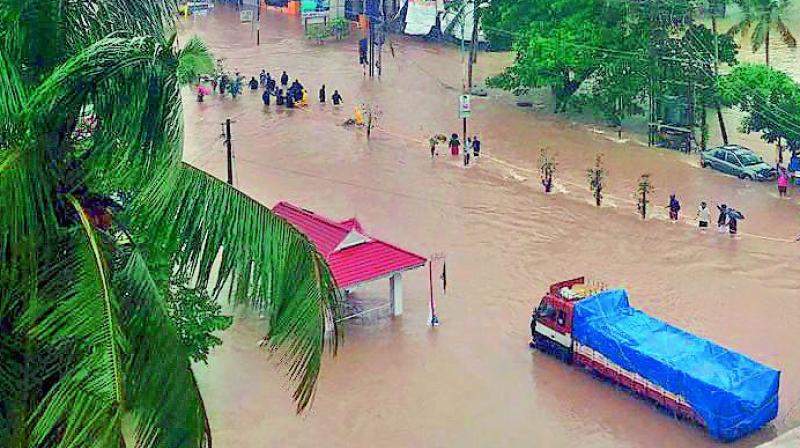Things we wished never happened this year
Some of the ageing dams were full to the brim, causing much anxiety over their safety.

1.Kerala’s floods: Unprecedented rain never seen in 100 years, unchecked urban growth and alleged mishandling of water release combined to create an entirely avoidable tragedy, taking vast swathes of the state under water. Some 480 people died in the floods that took place over two months. Some of the ageing dams were full to the brim, causing much anxiety over their safety.
2.Hate crimes: Till December 2018, UP had recorded 11 cases of bovine-related hate violence. According to a Reuters report, a total of 63 cow vigilante attacks occurred between 2010 and mid-2017, mostly since 2014. Till last year, 28 Indians – 24 of them Muslims – were killed.
3.Women unsafe: India is the world’s most dangerous country followed by Afghanistan and Syria for women due to the high risk of sexual violence, according to a poll of global experts. As if to prove this, two rapes stood out of the thousands in the country: The sexual assault of a minor girl belonging to the Bakharwal tribe in J&K, and the report of the rape of a nun in Kerala. The accused, Bishop Franco Mulakkal, was arrested after an outcry.
4.Bus that killed 57: In a major mishap, a TSRTC bus fell off a ghat road near the temple town of Kondagattu in Jagtial of Telangana killing 57 people. The bus was packed with 104 passengers.
5. Dasara mishap: 61 people were killed when a crowd of Dasara revellers that had spilled on to railway tracks while watching the burning of the Ravana effigy were run over by a train near Amritsar
6.CBSE fails: Students and parents were left enraged after the CBSE announced re-exams for Class X and Class XII economics over reports of paper leak. A hand-written question paper of the Class XII exam had allegedly been circulating on WhatsApp a day earlier.
7.Baby deaths: Almost half the districts are not on track to reduce mortality of newborns and meet the target set under the Sustainable Development Goals for 2030. Every year, 26 lakh babies die worldwide within 28 days of birth. Of these, 6.4 lakh neonatal deaths occur in India.
8.banking mess: It has been one of the worst years for the banking sector. Beginning with a severe blow caused by diamond merchant Nirav Modi, the state-run banks had a hard time with RBI tightening bad loan recognition norms.
9.Mumbai firetrap: 2017 ended with a fire mishap that killed 14 people at Kamala Mills. The trend continued this year, with several people being burnt to death. In the latest incident, six people were killed in at a blaze in the Employees’ State In-surance Corporation Hospital in Marol, Andheri East.
10.Kolkata’s bridges: A section of an over 50-year-old bridge on the Diamond Harbour Road in South Kolkata collapsed on Spetember 4. This was the city’s third bridge or flyover collapse in five-and-a-ahalf years.
11.Water crisis: The NITI Aayog which draws on data from 24 of India's 29 states, in June released the results of a study warning that India is facing its worst water crisis in history and that the demand for potable water will outstrip supply by 2030 if steps are not taken.
12.Risky home: An audit report lifted the veil off the organised physical and sexual exploitation of girls in Bihar shelter homes. The report pointed to exploitation and physical abuse at six homes and 14 shelters.
13.Dirty air: Delhi pollution was at its worst, going from “severe” to “emergency”. The air in the rest of the country was no better. The pollution contributed to the Supreme Court placing restrictions on the lighting of fire crackers but that was poorly implemented.
14. Worst weather: Indian states were battered by extreme weather throughout 2018 which was attributed to climate change. The country was hit deadly cyclones, floods that claimed lives of numerous people and left behind a trial of destruction this year. AP was hit by nearly five cyclones.
15. Nipah virus: The Nipah virus had previously affected eastern India in 2001 and 2007. The outbreak in 2018, mainly in Rajasthan, was the third outbreak in the country. It is caused due to consumption of contaminated food, or directly through infected people.

